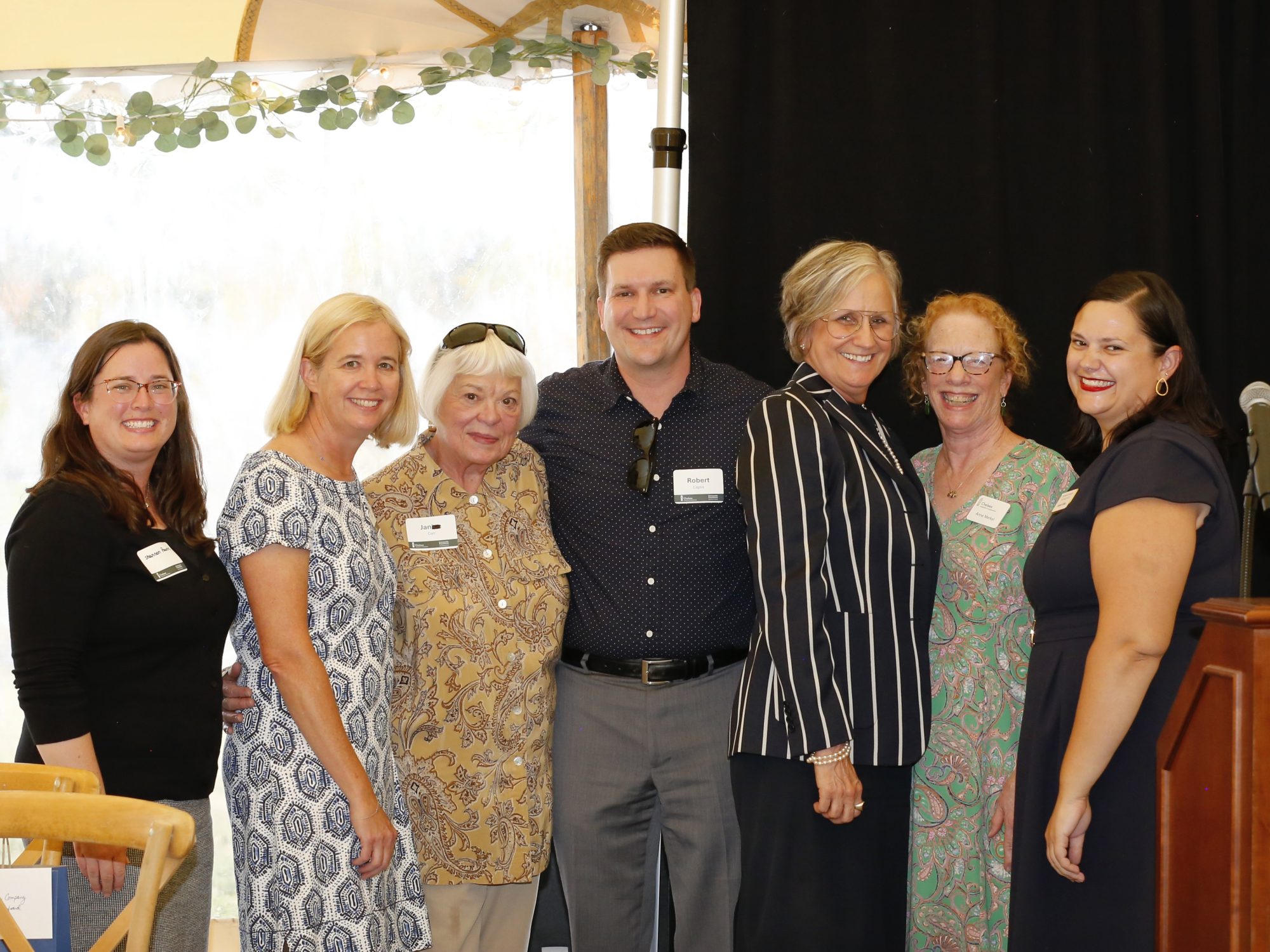Photo: Residents packed the Saline Township joint meeting on Sept. 24, 2025, voicing both support and opposition to the proposed data center project. Photo by Steven Sheldon
Saline Township is being sued by developers and landowners who claim the township’s zoning unfairly blocks them from building a proposed data center.
The township hosted a joint meeting of the board and planning commission on Wednesday, Sept. 24, 2025, to provide information to township residents about the recent litigation filed in the Washtenaw County Circuit Court.
Township consulting attorney Fred Lucas and David B. Landry, from the law firm Landry, Mazzeo, Dembinski & Stevens, P.C., addressed the overflow crowd about the lawsuit and the steps moving forward.
Plaintiffs in the suit were identified as: RD Michigan Property Owner I LLC, a Delaware limited liability company; Feldkamp Siblings, LLC, a Michigan limited liability company; Dennis Finkbeiner, an individual; Lynn Ellen Finkbeiner, an individual; Wilkin Farm Properties I, LLC, a Michigan limited liability company; Dennis C. Wilkin, an individual, and Alice M. Wilkin, an individual.
Lucas explained that the township was being sued with three counts in the lawsuit.
Count I:
Exclusionary zoning: (excerpts from the lawsuit)
The facts presented as evidence in Count 1:
- There are no data center projects in the township
- There is no land zoned I – 1, for industrial/research anywhere in the township
- There is no land identified in the township’s future land use map of its Master Plan for industrial/research uses
- There are limited, if any, locations within the township of suitable size and topography and with access to the electrical infrastructure and road network required for the data center project
- On the other hand, for reasons previously described, the property is an ideal and unique location for the data center, having no or minimal adverse impacts on neighboring lands and utility and road infrastructure
- Exclusionary zoning is prohibited by the Michigan Constitution. Exclusionary zoning occurs when a community unreasonably excludes a legitimate lad use from the community (Smokler v Whitfield, 394 Mich 574; 232 NW2d 616 (1974)
- A zoning ordinance that totally excludes an otherwise legitimate land use carries with it a strong taint of unlawful discrimination and denial of equal protection of the law with regard to the excluded use (Kropf v Sterling Heights, 391 Mich 139, 155-156, 215 MW2d 179 (1974)
- A zoning ordinance that creates a zoning classification without attaching it to any specific land is invalid on its face Smokler v Whitfield, 394 Mich 574,577; 232 NW2d 616 (1974) (Justice Williams concurring opinion)
- The data center is a legitimate land use and, indeed, one encouraged by the State and County. For at least all the reasons described above, among other things, the exclusion of the data center from the property at issue here (as well as the entire community by Saline Township’s zoning ordinance is unreasonable and exclusionary
- The application of the zoning to exclude a data center development from the property violates statutory, constitutional and common law prohibitions against exclusionary zoning
- Further, denial of Plaintiff’s rezoning application is designed to have and does have the effect of excluding data centers and other industrial/research facilities from the township in general and from the property in particular
Count II:
Declaratory Relief, Violation of Law (excerpts from the lawsuit)
- For reasons described above, defendant’s denial of the rezoning request was not based on the requirements and standards of the zoning ordinance and state law, and was otherwise without basis, and an unreasonable, arbitrary, capricious and exclusionary, and does not reasonable advance the express objectives of the Master Plan
- In addition, the present zoning of the property, which authorizes only farming and large, estate-size residential dwellings, is unreasonable, arbitrary, capricious and exclusionary, and does not reasonably advance the express objectives of the Master Plan
Count III:
Violation of Due Process of Law (excerpts from the lawsuit)
- The township’s denial of the rezoning request constitutes an arbitrary, capricious and unfounded exclusion of the police power granted the township, and/or an arbitrary, capricious and unfounded exclusion of a legitimate use of the area in question
- Moreover, there is no reasonable government interest being advanced by maintaining the present zoning classification of the property and barring the use of the property for the data center project
Attorney Landry, who will represent the township if the suit proceeds to court, explained that there are two options available to the township. They can direct the attorneys to defend the suit in court or to attempt to reach a settlement with the plaintiffs.
Landry acknowledged how emotional the issue was to the township residents but carefully explained that in court the judge will rely on facts and evidence. He explained that in the suit as filed, plaintiffs demonstrated evidence to support their claim that the township was acting with exclusionary zoning. He said that it was demonstrated that it was a legitimate activity, that it was legal and there was a demonstrated need.
Landry further explained, “Demonstrated need does not just apply to Saline Township but to the surrounding areas as well.” Though he was not certain how the surrounding area would be defined in this suit, he said, “It would be reasonable to assume that the surrounding area could include all of Washtenaw County.”
Representatives from Related Digital used fifteen minutes to highlight areas of the proposed data center project. People in attendance then began to ask questions. Once again, the question/answer segment was cordial and respectful. People asked questions, stated opinions and listened to responses. There were two people who became emotional, yelling their objections to the project, using obscenities to emphasize their point.
At one point, late in the meeting, a resident rose to speak. He addressed Saline Fire Chief Jason Sperle. Sperle was asked to respond to what the resident thought he had heard at a previous meeting. Sperle demurred, denying making that statement. The resident then roared, “You’re a liar!” Township trustee Tom Hammond tried to intercede, saying that the resident had misunderstood that discussion.
Near the conclusion of the meeting, a resident who lives near the proposed site implored the board to use facts and evidence to evaluate the best course forward for the township. After three hours of discussion, the meeting was adjourned at 10:05 p.m.
The decision now rests in the hands of the township board. They will continue discussions with the attorneys to determine its next moves.





 8123 Main St Suite 200 Dexter, MI 48130
8123 Main St Suite 200 Dexter, MI 48130

